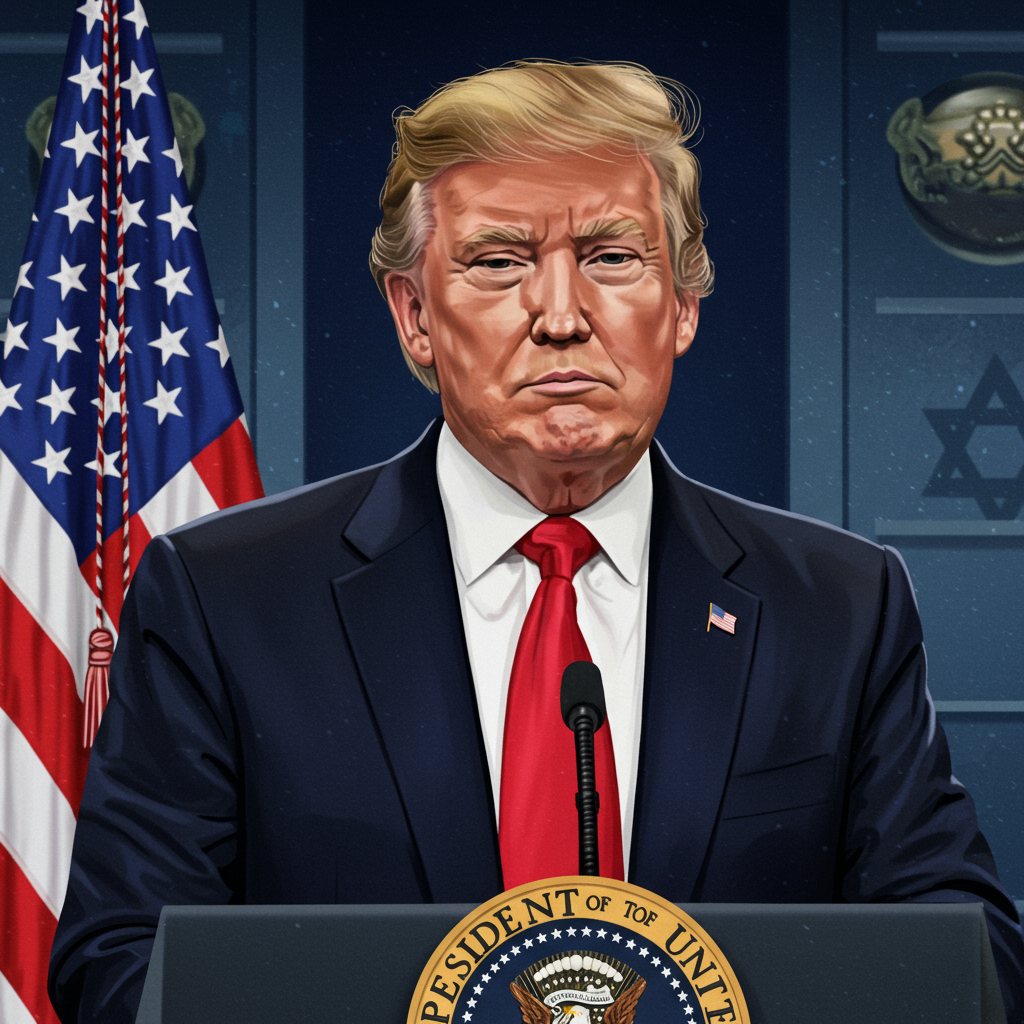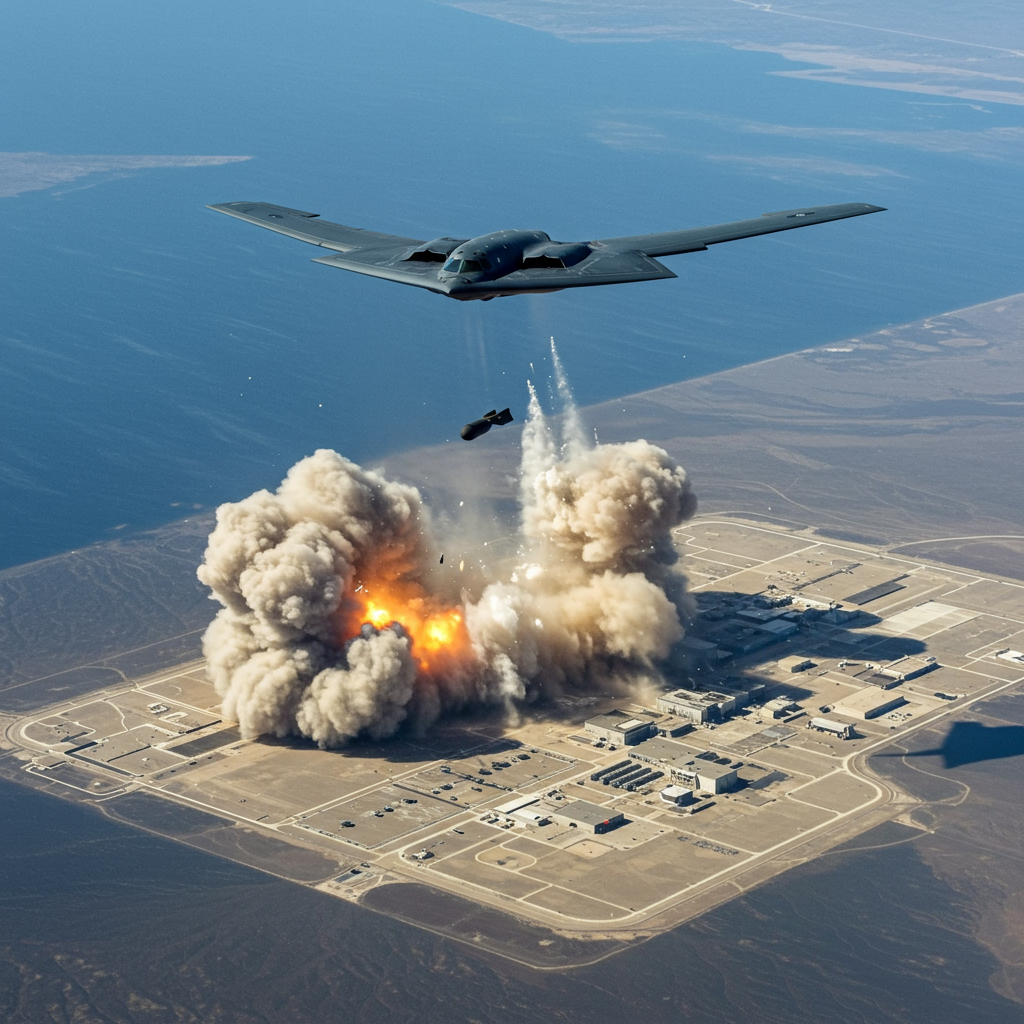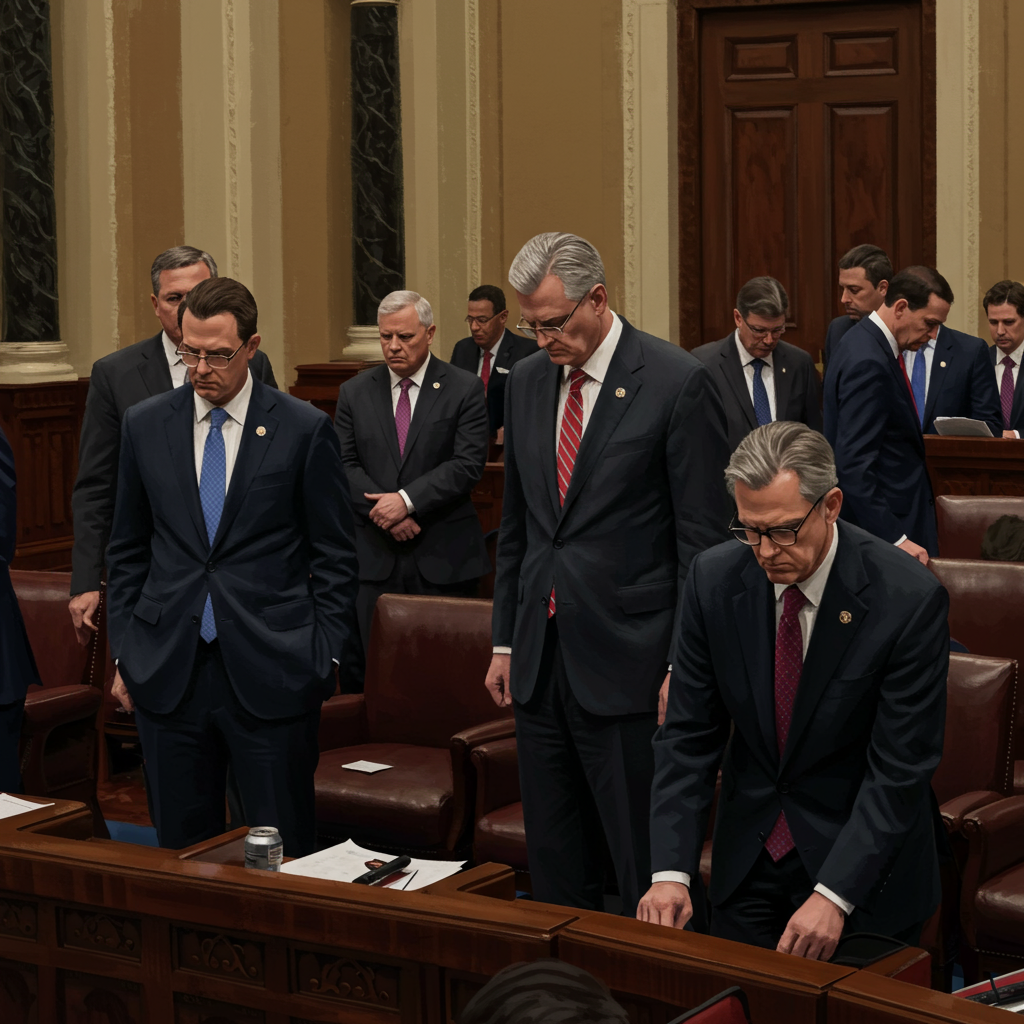In a dramatic late-night announcement, former President Donald Trump declared that Israel and Iran had agreed to a “complete and total ceasefire,” aiming to bring an end to the intense “12 Day War” that had gripped the Middle East. The proposed truce, which Trump said was brokered with assistance from Qatar, was set to begin in stages and conclude officially within 24 hours, marking a potential de-escalation in the rapidly escalating conflict.
The announcement followed a volatile period marked by reciprocal strikes, including a significant U.S. intervention targeting Iran’s nuclear program and Iran’s subsequent retaliation against a U.S. military base.
Escalation Preceded Truce
The conflict had reached a fever pitch after the United States conducted airstrikes on three Iranian nuclear facilities over the weekend. Utilizing B-2 bombers and powerful 30,000-pound “bunker buster” bombs in an operation dubbed “Operation Midnight Hammer,” the U.S. aimed to significantly degrade Iran’s nuclear capabilities. U.S. officials claimed “monumental damage” was inflicted, though independent assessments are pending, and the head of the U.N. nuclear watchdog anticipates “very significant damage” at key sites like Fordow. Iran, however, claimed it had preemptively removed nuclear material from the targeted locations.
In response to the U.S. strikes, Iran launched a missile attack Monday on the U.S. Al Udeid Air Base in Qatar, a major hub for U.S. Central Command. While Iran’s state media described it as a “mighty and successful response,” U.S. and Qatari officials reported that the missile barrage was largely intercepted by Patriot batteries. Critically, no U.S. or Qatari casualties were reported. Trump himself dismissed the attack as “very weak,” stating that Iran had provided “early notice,” which allowed forces to avoid harm – a claim Iran has not confirmed. Qatar condemned the attack as a “flagrant violation” of its sovereignty.
Simultaneously, Israel and Iran had been exchanging direct strikes. Israel stated it initiated its war to target Iran’s rapidly advancing nuclear program, escalating its attacks on Iranian “regime targets” in cities like Tehran. Israeli strikes hit locations near the headquarters of the military force that suppressed recent protests and reportedly blew open a gate at Evin prison, notorious for holding political activists and dual nationals. While Israel issued warnings for residents in Tehran districts near security institutions to evacuate, officials insisted they were not seeking regime change, but rather aiming to pressure the Iranian administration.
Iran, in turn, claimed to target Israeli cities including Haifa and Tel Aviv with missile and drone barrages. While explosions were heard in Jerusalem, likely from air defenses, no reports of injuries in Israel followed Iran’s strikes. However, the broader conflict had already resulted in significant casualties, with reports citing at least 24 killed and over 1,000 wounded in Israel, and according to one human rights group, over 950 killed and 3,450 wounded in Iran, including civilians and security personnel.
Trump Declares Ceasefire
Amidst this tension, President Trump posted on Truth Social that a “complete and total ceasefire” had been agreed upon. He stated the truce would begin phasing in approximately six hours after his announcement (around midnight Tuesday Eastern Time), allowing both sides a window to finish any final operations before a full halt after 24 hours, declaring it the “Official END to THE 12 DAY WAR.” He thanked the Emir of Qatar for his assistance and expressed hope that Iran might move towards “Peace and Harmony,” encouraging Israel to do the same.
The agreement was reportedly facilitated by Qatar’s Prime Minister Sheikh Mohammed bin Abdulrahman Al Thani. Sources indicated Trump communicated directly with Israeli Prime Minister Benjamin Netanyahu, who reportedly agreed to the ceasefire on the condition that Iran would not launch further attacks. Other U.S. officials, including Vice President JD Vance and Secretary of State Marco Rubio, were said to be involved in negotiations through various channels.
Reactions and Uncertainty
Despite Trump’s declaration, immediate confirmation from the involved parties was notably absent. The Israeli military and Prime Minister Netanyahu’s office did not issue immediate comments. In Iran, state television repeatedly referred to it as a “Trump-claimed” ceasefire, pointing out that Israeli strikes continued in Tehran and other cities even after his announcement. An unnamed senior Iranian official reportedly told CNN that Tehran had not received any ceasefire proposal and viewed Trump’s statement as a “deception” aimed at justifying ongoing attacks, claiming Iran was prepared to intensify its retaliation.
The news of a potential ceasefire, however, had a palpable impact on global markets. Oil prices, which had spiked amidst fears of regional disruption and potential threats to shipping lanes like the Strait of Hormuz, saw a significant drop, falling below pre-conflict levels. Stock markets in Asia also reacted positively. Analysts interpreted this market behavior as a signal that investors perceived a reduced risk of further escalation.
Internationally, reactions varied. Russian President Vladimir Putin, a close ally of Iran, met with Iran’s foreign minister and condemned the U.S. and Israeli attacks as “absolutely unprovoked aggression.” The U.N. Secretary-General expressed alarm at the escalation and called for an end to the fighting.
The U.S. administration formally notified Congress of the strikes on Iran, citing the President’s authority to protect U.S. citizens and national interests, and in collective self-defense of allies like Israel, under the War Powers Resolution. The justification highlighted the goal of eliminating Iran’s nuclear program. This move sparked debate in Congress regarding the legal basis and lack of prior consultation.
As the situation remains fluid, the coming hours will determine whether President Trump’s announced ceasefire successfully takes hold, potentially averting a wider regional conflict and steering the focus back towards diplomatic efforts regarding Iran’s nuclear ambitions.



